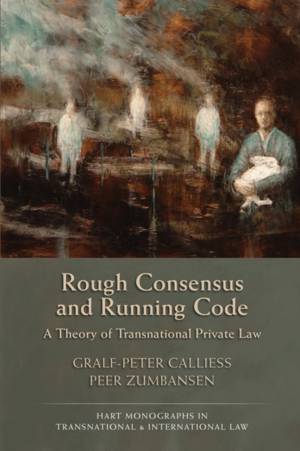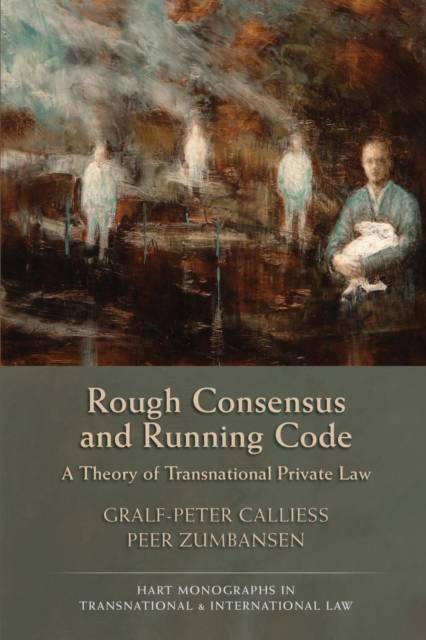
- Afhalen na 1 uur in een winkel met voorraad
- Gratis thuislevering in België vanaf € 30
- Ruim aanbod met 7 miljoen producten
- Afhalen na 1 uur in een winkel met voorraad
- Gratis thuislevering in België vanaf € 30
- Ruim aanbod met 7 miljoen producten
Rough Consensus and Running Code
A Theory of Transnational Private Law
Gralf-Peter Callies, Peer ZumbansenOmschrijving
Private law has long been the focus of efforts to explain wider developments of law in an era of globalisation. As consumer transactions and corporate activities continue to develop with scant regard to legal and national boundaries, private law theorists have begun to sketch and conceptualise the possible architecture of a transnational legal theory. Drawing a detailed map of the mixed regulatory landscape of 'hard' and 'soft' laws, official, unofficial, direct and indirect modes of regulation, rules, recommendations and principles as well as exploring the concept of governance through disclosure and transparency, this book develops a theoretical framework of transnational legal regulation.
Rough Consensus and Running Code describes and analyses different law-making regimes currently observable in the transnational arena. Its core aim is to reassess the transnational regulation of consumer contracts and corporate governance in light of a dramatic proliferation of rule-creators and compliance mechanisms that can no longer be clearly associated with either the 'state' or the 'market'. The chosen examples from two of the most dynamic legal fields in the transnational arena today serve as backdrops for a comprehensive legal theoretical inquiry into the changing institutional and normative landscape of legal norm-creation.Specificaties
Betrokkenen
- Auteur(s):
- Uitgeverij:
Inhoud
- Aantal bladzijden:
- 382
- Taal:
- Engels
- Reeks:
- Reeksnummer:
- nr. 5
Eigenschappen
- Productcode (EAN):
- 9781849463546
- Verschijningsdatum:
- 1/07/2012
- Uitvoering:
- Paperback
- Formaat:
- Trade paperback (VS)
- Afmetingen:
- 155 mm x 231 mm
- Gewicht:
- 589 g

Alleen bij Standaard Boekhandel
Beoordelingen
We publiceren alleen reviews die voldoen aan de voorwaarden voor reviews. Bekijk onze voorwaarden voor reviews.







